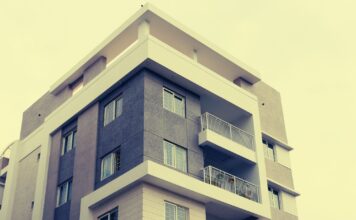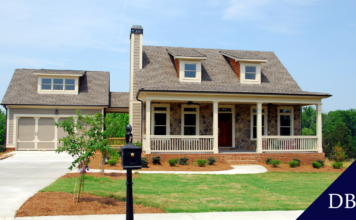Introduction
Investing in real estate is one of the oldest and most trusted ways to make your money work for you. There is a saying that Belgians are “born with a brick in their stomach.” Real estate offers significant advantages over other forms of investment, such as a stable passive income, protection against inflation, leverage through mortgages, and the potential for long-term capital appreciation.
However, investing in real estate is not without risks. There are downsides and challenges to consider, such as high entry costs, maintenance and management fees, taxes, complex regulations, market fluctuations, and liquidity issues.
In this blog post, we list the pros and cons of investing in real estate in Belgium so you can make an informed decision. We also discuss tips and trends to help you on your real estate journey.
The Benefits of Investing in Real Estate in Belgium
Real estate has several attractive features that make it a popular choice for investors. Here are the main ones:
Stable and Passive Income
One of the biggest advantages is the ability to generate a stable, passive income through rent. When you rent out a property, you receive a fixed monthly amount, which you can use to pay off your loan, cover costs, or save.
This passive income is generally higher than the interest on a savings account. According to Statbel figures (2022), the average rental price in Belgium was around €815 per month. Moreover, rental income is relatively stable and predictable. Rents in Belgium are typically indexed annually to inflation, meaning your income grows over time.
Protection Against Inflation
Real estate offers excellent protection against inflation. As the general price level rises (inflation), the value of money decreases. However, real estate prices and rents tend to rise along with inflation.
Historically, real estate prices in Belgium have increased faster than inflation, preserving or even growing your purchasing power. While a savings account loses value in real terms during high inflation, a property investment retains its value.
The Leverage Effect
A unique advantage of real estate is the ability to use leverage. This means you can borrow money to invest, increasing the return on your own capital. You profit from the appreciation of the entire property value, even if you only paid a fraction of it upfront (your down payment).
Example: If you buy a €250,000 property with €50,000 of your own money and a €200,000 mortgage, and the property value rises by 3%, you gain 3% on the full €250,000—which is a much higher return on your initial €50,000 investment.
Potential for Long-Term Capital Appreciation
Besides rental income, you can profit from the increase in the property’s value over time. In Belgium, there is a structural shortage of housing combined with a growing population, which supports long-term price growth. Between 1973 and 2019, real estate prices in Belgium rose by an average of 5.4% per year, well above inflation.
The Downsides of Investing in Real Estate in Belgium
Investing in bricks is not a guaranteed path to riches. There are significant risks and costs involved:
High Entry Costs
Real estate is expensive. You need substantial capital to start. In addition to the purchase price, you must account for transaction costs (“registration duties” or registratierechten, notary fees, etc.), which can add 10% to 15% to the total cost. Banks also require a solid down payment (usually 10-20%).
Maintenance and Management Costs
As an owner, you are responsible for repairs and maintenance. Boilers break, roofs leak, and regulations regarding energy efficiency (EPC labels) are becoming stricter. These costs eat into your return. Additionally, managing a property takes time: finding tenants, collecting rent, and handling administrative tasks. Hiring a property manager saves time but costs money (usually 5-10% of the rent).
Taxes
Belgium has a complex tax system for real estate:
- Registration Duties: A tax paid upon purchase (varying by region: Flanders, Brussels, Wallonia).
- Property Tax (Onroerende Voorheffing): An annual tax based on the “Cadastral Income” (KI).
- Capital Gains Tax: If you sell a property within 5 years of purchase, you may pay a 16.5% tax on the profit.
- Rental Income Tax: Generally, private individuals are taxed on the indexed Cadastral Income (increased by 40%), not on the actual rent received (unless renting to a company/professional).
Liquidity Risk
Real estate is “illiquid.” You cannot sell a house as quickly as a stock or ETF. Selling a property takes months, involves notary procedures, and incurs costs. It is not a suitable investment if you might need your cash quickly.
The Risk of Bad Tenants
A tenant who doesn’t pay or damages your property is every landlord’s nightmare. Eviction procedures in Belgium can be lengthy and costly. Thorough screening and a good rental contract are essential.
Tips for Success
- Location, Location, Location: Choose a region with strong economic activity and population growth.
- Calculate Your Net Return: Don’t just look at the gross rent. Deduct all costs (taxes, maintenance, vacancy) to see the real picture.
- Think Long Term: Real estate is a marathon, not a sprint. The transaction costs are too high for short-term flipping unless you add significant value through renovation.
Conclusion
Investing in Belgian real estate remains a popular and potentially lucrative strategy for building wealth. It offers stability, inflation protection, and leverage. However, it requires capital, effort, and a good understanding of the local tax rules and market dynamics.
Are you considering buying your first investment property? Or do you prefer the simplicity of stock market investing? Let me know in the comments below.


